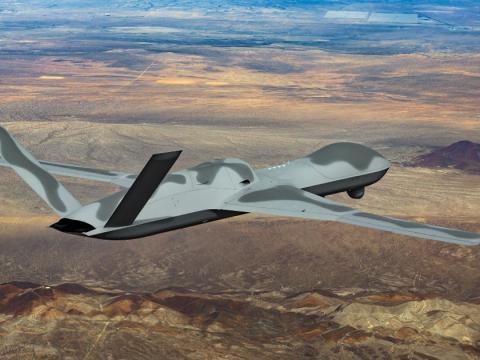To Improve Acquisition, Government and Industry Must Strike a Balance
Whether it's needs versus wants, open conversations versus regulations to protect intellectual property or oversight versus open development, agencies and the commercial sector must find the happy medium for acquisition processes to be truly reformed.
Whether it's needs versus wants, open conversations versus regulations to protect intellectual property or oversight versus open development, agencies and the commercial sector must find the happy medium for acquisition processes to be truly reformed. These were the tough issues experts discussed at AFCEA International's SOLUTIONS Series event today. The conference, which took place at the National Conference Center, Lansdowne, Virginia, as well as via the SOLUTIONS the Web site, began with a presentation by John W. Nyce of the U.S. Department of the Interior and ended with a town hall meeting where attendees posed their questions and made their points to Maj. Gen. (Sel.) George J. Allen, USMC, director C4 and CIO of the U.S. Marine Corps; Frank Anderson of the Defense Acquisition University; and Tony Montemarano, DISA's component acquisition executive. In between, experts on three panels presented their viewpoints on training, requirements and lessons learned.
While some speakers and panelists said they believe the acquisition system could be improved but is generally solid, others pointed out where total reform is needed. Some of the key points shared:
- "We are 20th century managers managing a 21st century work force," Montemarano said.
- Need to bring the younger generation-the "G Generation," which stands for Google Generation-to these types of discussions and conferences.
- Top three issues identified by the Town Hall panelists:
Anderson:
*Technology in the work place is moving faster than the acquisition processes that are in place.
*Aging work force.
*Reviewing curriculum to ensure proper training.
Montemarano:
*Processes intended to be flexible; work force culture NOT flexible.
*Acquisition processes need to be embraced NOT avoided.
*DISA move to Fort Meade and agency is losing talent daily.
Gen. Allen:
*Technology is moving faster than we can acquire it.
*Network security needs to be built in upfront.
*"Green" IT.
- The IT procurement paradigm is shifting at least in part because of a shift to cloud computing by DOD. Both the government and industry is driving this change.
- Benefits of cloud computing include cost effectiveness, quickness, increased flexibility and "green." Challenges include security, vendor management and pricing.
- To move to cloud computing, a team that understands the requirements must be formed; a governance model must be in place; and employee training must improve.
- "I'm not telling you that I have the answers. I don't think anyone does," Nyce said about cloud computing challenges.
- "We have not made any kind of strides in putting our acquisition [processes] in electronic form," Nyce stated.
- The cornerstone to describing requirements well is communications between the government and industry.
- There is a lack of willingness on the part of government agencies to talk to industry. The RFI process is NOT a good way to understand the available solutions.
- Many times, government agencies talk about what they want rather than what they need.
- One-on-one meetings with contractors are better than large forums like Industry Days, BUT government procurement personnel must be sure to share the exact same information with each company.
- Must be communications among the user, contract officer and procurement office. Bring the user in earlier in the procurement process.
- "As a contractor, I am disappointed with the government's commitment to using small businesses," Anthony Jimenez said during one of the panel sessions.
- Solutions exist to solve current problems, but they cannot be identified quickly.
- Recommendations: improve communications between government organizations; improve acquisition planning; define requirements better to increase the success rate; and trust the contractors' judgment.
- The challenge in setting requirements for IT is the balance between just enough definition and not too much definition.
- Oversight of IT projects must be different than it is for other platforms.
- Training at the Defense Acquisition University needs to include courses in purchasing IT, which is different than purchasing platforms.
- Need to have the right people in place, and it's not just about training-it's also about experience.
- Need to move away from proprietary solutions.
- Need simpler, smaller, net-enabled solutions, but policy is not flexible enough.
- Opinions vary on the acceptability of teleworking.



Comments